
Clene Nanomedicine prepares to submit an NDA for CNM-Au8, a promising ALS treatment, aiming for accelerated FDA approval by 2026.

Clene Nanomedicine prepares to submit an NDA for CNM-Au8, a promising ALS treatment, aiming for accelerated FDA approval by 2026.

Here's some of what is coming soon to NeurologyLive® this week.

Spencer Hutto, MD, associate program director of the adult neurology residency at Emory University, outlined the key diagnostic nuances, treatment considerations, and emerging therapeutic strategies shaping modern neurosarcoidosis care.

Test your neurology knowledge with NeurologyLive®'s weekly quiz series, featuring questions on a variety of clinical and historical neurology topics. This week's topic is on CAR-T therapy for autoimmune neurologic diseases!

Cladribine shows superior efficacy over S1P modulators in reducing disability progression in treatment-naive relapsing-remitting MS patients.

The assistant professor of neurology at Northwestern University explained key diagnostic, therapeutic, and management considerations for clinicians caring for patients with NMOSD across diverse and evolving clinical scenarios.
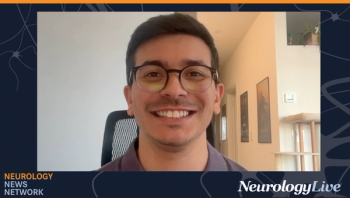
Neurology News Network for the week ending November 15, 2025. [WATCH TIME: 4 minutes]

The agency has required a postmarketing observational study to monitor safety for at least 12 months following gene therapy treatment in patients with Duchenne muscular dystrophy.

Take 5 minutes to catch up on NeurologyLive®'s highlights from the week ending November 14, 2025.
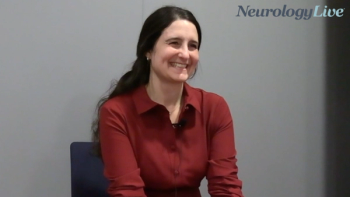
At ECTRIMS 2025, the staff neurologist at Cleveland Clinic’s Mellen Center for MS discussed developing a machine-learning tool to predict individualized risk of recurrent disease activity in multiple sclerosis. [WATCH TIME: 6 minutes]

Centessa Pharmaceuticals reveals promising early-stage results for its orexin receptor 2 agonists, ORX750 and ORX142, targeting neurologic sleep disorders.
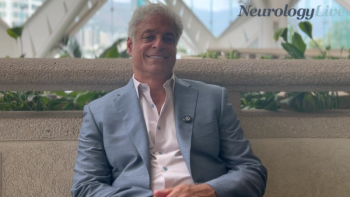
At MDS 2025, the chairman and CEO at ABLi Therapeutics discussed phase 2 results of risvodetinib, a highly selective c-Abl inhibitor, in patients with Parkinson disease. [WATCH TIME: 5 minutes]

Mind Moments®, a podcast from NeurologyLive®, brings you an exclusive interview with James Berry, MD, MPH; and Jinsy Andrews, MD, MSc. [LISTEN TIME: 28 minutes]

Beatrice Yang, MSc, lead specialist for patient insights at Lundbeck, discussed how incorporating patient and caregiver feedback helped shape the design of a phase 3 multiple system atrophy trial to make participation more practical and patient-centered.

Eva Mistry, MD, an associate professor of neurology at the University of Cincinnati, discusses the mechanism, rationale, and clinical data supporting SCP776, a first-in-class IGF-1-based cerebroprotective therapy for acute ischemic stroke.

The phase 3 FORTIFY trial of BBP-418 met its primary and key secondary interim analysis end points and demonstrated a safety profile consistent with prior studies in patients with LGMD2I/R9.
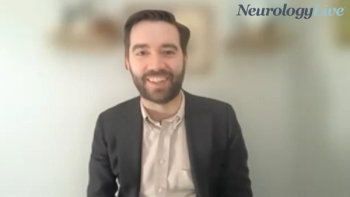
The executive vice president of public policy and advocacy at the Muscular Dystrophy Association discussed how collaboration can improve policy, funding, and care for patients with neuromuscular diseases. [WATCH TIME: 7 minutes]

Liche Zhou, MD, of the department of neurology at Jiang University School of Medicine, provided commentary on new phase 1 data on an iPSC-targeted cell therapy presented at the 2025 MDS Congress.
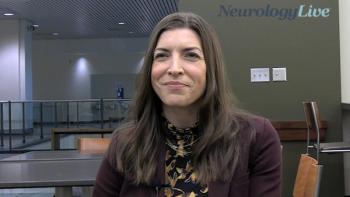
The president of the National Society of Genetic Counselors discussed the 2025 NSGC conference, highlighting AI and gene therapies as key topics, while noting the importance of genetic counselors in clinical care. [WATCH TIME: 4 minutes]

New trial results reveal alixorexton's significant efficacy in treating narcolepsy type 2, marking a potential breakthrough in sleep medicine.
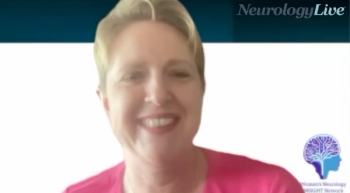
The co-founder of the Women Neurologists Group shared her experiences from the 4th Annual Women in Neurology Conference in Colorado Springs, highlighting its focus on education and wellness. [WATCH TIME: 6 minutes]

Findings from a second phase 3 trial, dubbed FENhance 1, assessing fenebrutinib in patients with relapsing multiple sclerosis are anticipated by the first half of 2026.
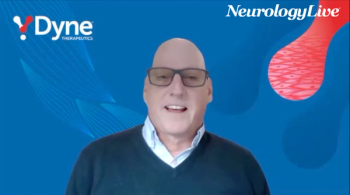
The chief medical officer at Dyne Therapeutics discussed the ACHIEVE trial’s early results, highlighting z-basivarsen’s potential to meaningfully improve muscle and CNS function in patients with myotonic dystrophy type 1. [WATCH TIME: 3 minutes]

The vice president and Asset Head of Rare and Ultra-Rare Diseases at UCB provided clinical perspectives on the FDA approval of Kygevvi, the first marketed treatment specific for patients with thymidine kinase 2 deficiency (Tk2d).

The vice president and Asset Head of Rare and Ultra-Rare Diseases at UCB discussed the landmark FDA approval of doxecitine/doxribitine, the first-ever therapy for thymidine kinase 2 deficiency (TK2d). [WATCH TIME: 3 minutes]

Jupiter Neurosciences advances Parkinson treatment with FDA clearance for JOTROL's phase 2a trial, showcasing promising safety and bioavailability results.

Despite not meeting its primary efficacy end point for preventive treatment of episodic migraine, onabotulinumtoxinA was well tolerated and safety outcomes were consistent with prior data.
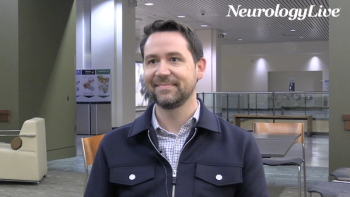
The vice president of Rare Disease Strategy at Worldwide Clinical Trials discussed how genetic counselors are becoming integral to the design, execution, and interpretation of clinical research. [WATCH TIME: 3 minutes]

A genetic counselor-only clinic enhances access to genetic testing in pediatric neurology, proving efficient and effective for timely precision diagnostics.

Caregivers share insights on discussing social determinants of health in pediatric clinics, revealing preferences for surveys over in-person conversations.